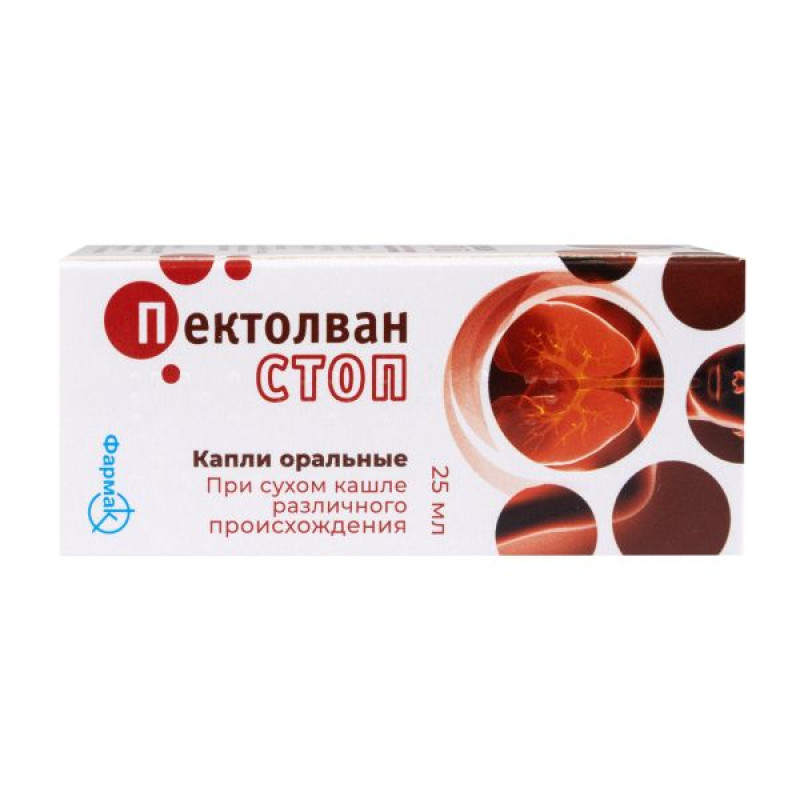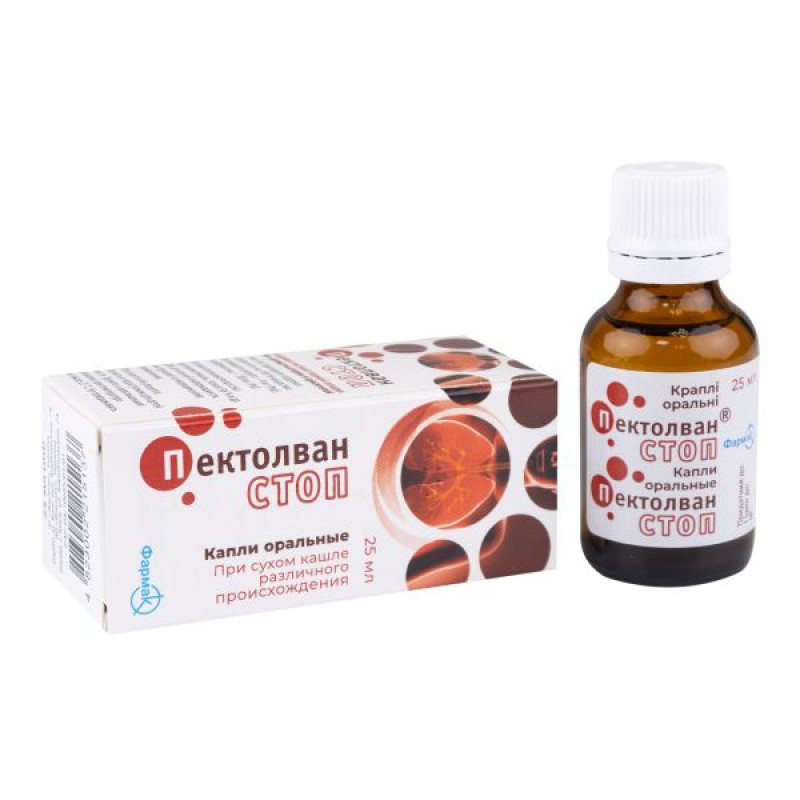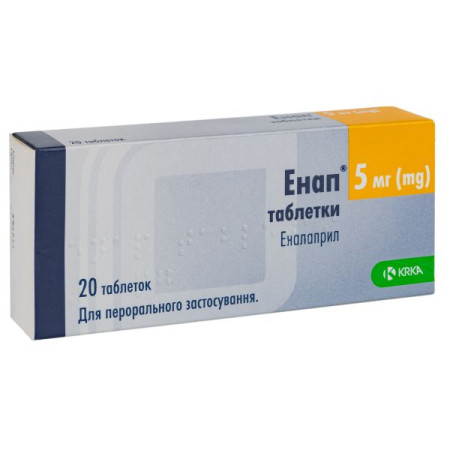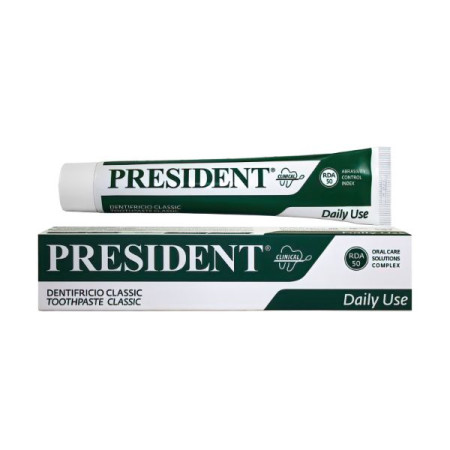Pectolvan Stop drops for oral use bottle 25 ml
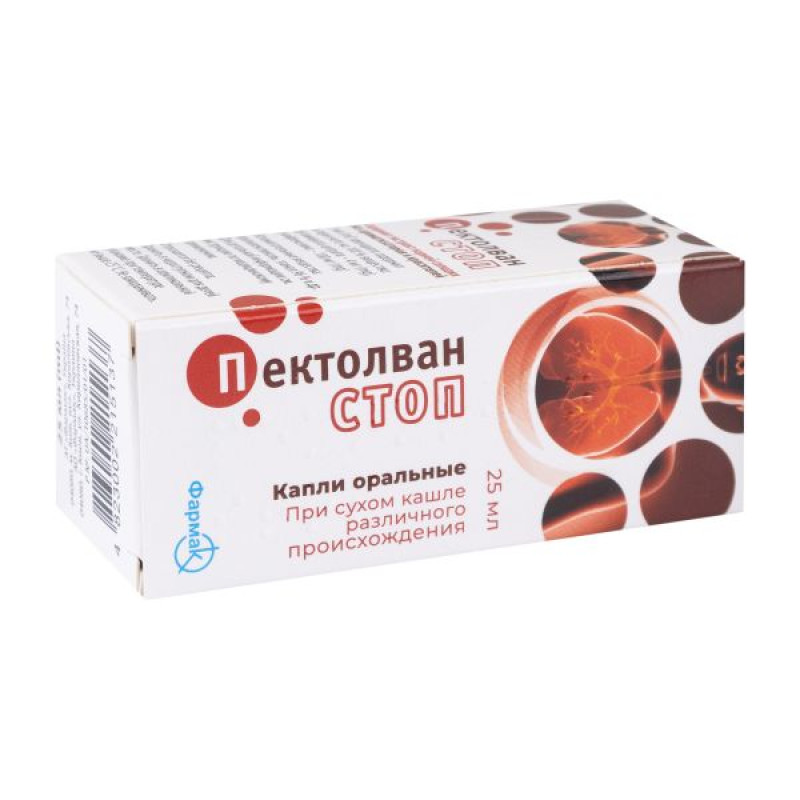
Instructions for use Pectolvan Stop drops for oral use, bottle 25 ml
Composition
active ingredients: butamirate citrate, guaifenesin;
1 ml of the drug (33 drops) contains butamirate citrate in terms of 100% substance 4 mg, guaifenesin in terms of 100% substance 100 mg;
excipients: propylene glycol, polysorbate 80, licorice root extract, food flavoring "Alpine herbs", purified water, ethanol 96%.
Dosage form
Oral drops.
Main physicochemical properties: transparent viscous liquid from yellow to yellow-brown in color.
Pharmacotherapeutic group
Antitussives and expectorants, combinations.
ATX code R05F B02.
Pharmacological properties
Pharmacodynamics
A combined drug that has antitussive, mucolytic and expectorant effects. Butamirate citrate, which is part of the drug, belongs to antitussive substances of peripheral action, does not cause addiction, does not suppress the respiratory center.
The antitussive effect of butamirate citrate is complemented by the expectorant effect of guaifenesin, which enhances the secretion of bronchial glands, enhances the activity of the ciliated epithelium, reduces the viscosity of sputum and thereby improves its discharge.
Pharmacokinetics
Butamirate citrate is rapidly and completely absorbed after oral administration, up to 98% bound to plasma proteins. It is metabolized to form two metabolites that have antitussive effects, more than 90% of which are excreted by the kidneys; only a small part of them is excreted in the feces. The biological half-life is approximately 6 hours.
Guaifenesin is rapidly and easily absorbed from the gastrointestinal tract after oral administration. A small amount binds to plasma proteins. It is excreted by the kidneys, mainly in the form of metabolites, a small part in an unchanged state. The biological half-life is 1 hour.
Indication
Dry, irritable, paroxysmal cough of various origins. The drug can be used to eliminate cough in the pre- and postoperative period.
Contraindication
Hypersensitivity to the components of the drug, myasthenia gravis.
Interaction with other medicinal products and other types of interactions
Because butamirate suppresses the cough reflex, concomitant use of expectorants should be avoided, as this may lead to mucus stagnation in the respiratory tract, increasing the risk of bronchospasm and respiratory tract infection.
Lithium and magnesium enhance the effect of guaifenesin.
Guaifenesin enhances the analgesic effect of paracetamol and acetylsalicylic acid, and enhances the effects of alcohol and other substances that depress the central nervous system.
Centrally acting muscle relaxants may enhance the undesirable effects of guaifenesin, especially muscle weakness.
Guaifenesin may cause false-positive results in diagnostic tests for 5-hydroxyindoleacetic acid (photometric method using nitrosonaphthol as a reagent) and vanillylmandelic acid in urine. Treatment with Pectolvan® Stop should be discontinued 48 hours before urine collection for this analysis.
Application features
The drug should not be used in patients with bronchial asthma, chronic bronchitis or emphysema, productive cough and/or persistent or chronic cough associated with smoking.
Use the drug with caution in tuberculosis and pneumoconiosis.
If the cough persists or worsens, treatment should be reviewed.
The drug Pectolvan® Stop contains 34.3 vol. % ethanol (alcohol), i.e. up to 350 mg when taking the maximum single dose (40 drops), which is equivalent to approximately 8 ml of beer or 3 ml of wine when taking the maximum single dose. This may have undesirable effects for those suffering from alcoholism. The presence of ethanol should be taken into account when treating pregnant or breastfeeding women, as well as children and high-risk groups, such as patients with liver disease or epilepsy.
If you have been told by your doctor that you have an intolerance to some sugars, contact your doctor before taking this medicine.
Use during pregnancy or breastfeeding
There are no controlled studies in pregnant women or animals. An increased incidence of inguinal hernia in newborns has been reported with the use of guaifenesin in the first trimester of pregnancy. Therefore, the drug is contraindicated in the first trimester of pregnancy.
The use of the drug in the II and III trimesters of pregnancy or during breastfeeding is possible only in cases where, in the opinion of the doctor, the expected therapeutic effect for the mother outweighs the potential risk to the fetus/child.
It is not known whether butamirate citrate or guaifenesin passes into breast milk. For safety reasons, the benefits and risks of using the drug during breastfeeding should be carefully weighed.
Ability to influence reaction speed when driving vehicles or other mechanisms
Rarely, the drug may cause drowsiness, which may slightly affect the ability to drive or operate machinery. Therefore, caution should be exercised when driving or performing other tasks that require alertness (e.g., operating machinery).
Method of administration and doses
Use internally. It is advisable to take after meals. Dissolve the appropriate number of drops in 50-100 ml of liquid (water, tea, fruit juice) depending on age.
The interval between doses should be 4-6 hours.
The dosage should be followed depending on the patient's body weight:
up to 7 kg – 8 drops 3-4 times a day,
7-12 kg – 9 drops 3-4 times a day,
12-20 kg – 14 drops 3 times a day,
20-30 kg – 14 drops 3-4 times a day,
30-40 kg – 16 drops 3-4 times a day,
40-50 kg – 25 drops 3 times a day,
50-70 kg – 30 drops 3 times a day,
70-90 kg – 40 drops 3 times a day.
The maximum daily dose of guaifenesin for children aged 6 months to 2 years is 300 mg/day (99 drops), for children aged 2 to 6 years – 600 mg/day (198 drops), from 6 years to
12 years – 1200 mg/day, for adults and children over 12 years – 2400 mg/day.
The use of more liquid increases the effectiveness of the treatment. If Pectolvan® Stop is prescribed to very small children (with a body weight of less than 7 kg), the dose can be reduced. Even if the child does not drink all 100 ml of liquid with the drug dissolved in it, the number of drops of the drug (total concentration) in the liquid cannot be increased.
Do not take the drug for longer than 7 days without consulting a doctor.
Children
The drug can be used in children from 6 months of age according to indications.
Overdose
In case of overdose, the signs of toxic effects of guaifenesin predominate - drowsiness, nausea, vomiting, muscle weakness.
Signs of overdose such as diarrhea, dizziness, and hypotension may also occur. Radionegative urolithiasis is possible.
There is no specific antidote.
Treatment. Gastric lavage, administration of activated charcoal. Symptomatic therapy is aimed at maintaining the functions of the cardiovascular and respiratory systems, kidney function and electrolyte balance.
Adverse reactions
When taken at the recommended dosage, the drug is usually well tolerated. Side effects usually disappear after the dose is reduced.
Metabolism: lack of appetite.
From the nervous system: headache, drowsiness.
From the organs of hearing and balance: dizziness.
Respiratory system: difficulty breathing.
On the part of the digestive tract: feeling of discomfort in the digestive tract, nausea, stomach pain, vomiting, diarrhea.
From the urinary system: urolithiasis.
On the part of the immune system: allergic reactions, including anaphylactic shock, angioedema, skin rashes, itching, urticaria.
Expiration date
3 years.
Do not use the drug after the expiration date indicated on the package.
Storage conditions
Store in original packaging at a temperature not exceeding 25 ° C. Do not freeze.
Keep out of reach of children.
Packaging
25 ml in a bottle. 1 bottle in a pack.
Vacation category
Without a prescription.
Producer
PJSC "Farmak".
Location of the manufacturer and its business address
Ukraine, 04080, Kyiv, Frunze St., 74.
There are no reviews for this product.
There are no reviews for this product, be the first to leave your review.
No questions about this product, be the first and ask your question.







